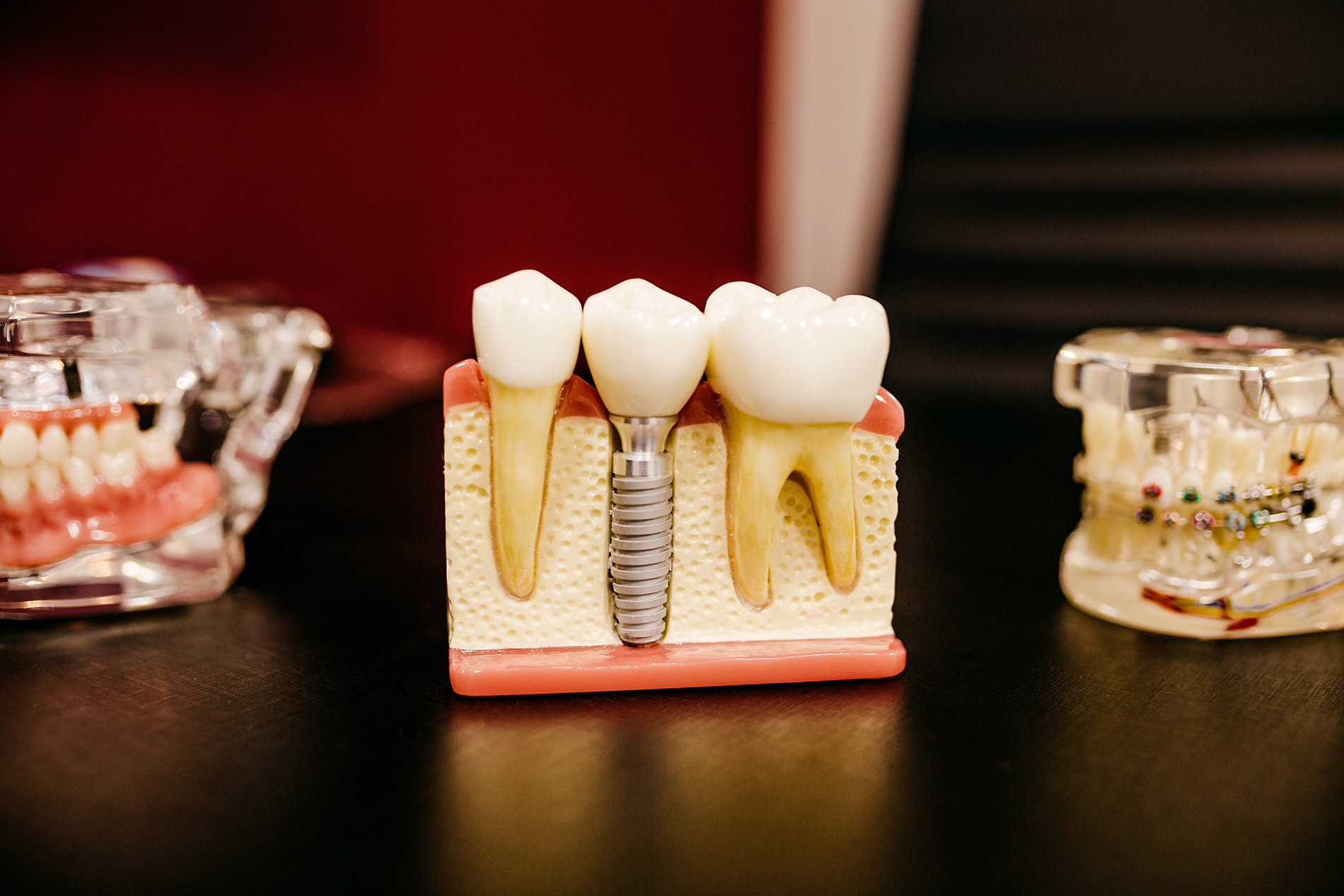Are you self-conscious about gaps in your smile? Perhaps you’re booked in for a dental extraction and are wondering how you’ll replace your troublesome tooth (or teeth)? One of the most popular and effective methods for replacing a tooth is to insert a dental implant. To help you understand whether an implant is right for you, we’ve put together a quick guide weighing up the pros and cons of the treatment.
First things first: What is a dental implant?
Dental implants are titanium screws that can be inserted directly into the jawbone, replacing a missing tooth root. Once fitted, the bone around the implant will start to fuse with the titanium, ensuring the new tooth stays in place. A crown or denture is then attached to the top of the implant to restore the patient’s smile.
What are the benefits of dental implants?
Undergoing a dental implant procedure could bring about the following benefits:
1. A natural-looking smile
Dental implants look natural and will restore your confidence in your appearance. While dentists can tailor modern dentures to suit your face, they have the potential to slip and disrupt your day. With implants, you can be confident that your teeth will look and feel great at all times.
2. A permanent replacement for your tooth
Dental implants are designed to meld to your jaw, ensuring they remain as strong and fixed as a natural tooth. While the replacement crown or denture will be vulnerable to wear and tear, the underlying implant should last a lifetime if you look after it properly.
3. Protection against bone loss
After losing a tooth, the bone that once held your tooth in place may start to deteriorate. If several of your teeth are missing, your jaw may start to shrink and alter the appearance of your face. Dental implants help prevent this process by supporting the jaw and stimulating tissue growth in the area. As such, choosing implants over dentures or bridges may represent a better choice in the long term.
If your jaw has already started to deteriorate, it is possible to rebuild it through a bone grafting procedure. During the treatment, a surgeon will repair your jaw using bone graft material (typically processed bone). Once in place, your jaw will start to generate cells, and your body will absorb the graft. As soon as your jaw is restored, you will be eligible to undergo a dental implant procedure that will keep your smile looking bright and healthy for many years to come.
4. You can replace as many teeth as required
It is possible to restore as many teeth as necessary with a dental implant. What’s more, dental implants are incredibly strong and secure, meaning you may not need an implant for every tooth that is missing. For patients with significant tooth loss, All-on-4 implants provide full sets up upper or lower teeth using just four implants.
5. Implants are easy to look after
Dental implants are much easier to look after than dentures or bridges, as they act just like natural teeth. Dentists often tell patients with dentures to avoid certain types of food, particularly if they’re chewy or sticky. People with dentures are also required to clean their dentures carefully every day and store them in a special solution during the night.
With an implant, you can avoid this time-consuming process and eat anything you like, provided you follow good oral hygiene practices. As you’re probably aware, looking after your teeth and gums involves brushing your teeth twice daily, flossing at least once a day, avoiding eating too much sugar, and visiting your dentist for check-ups every six months.
What are the drawbacks associated with dental implants?
Okay, so now you know how dental implants could improve your life, what are the drawbacks you may wish to consider? Here are the most common obstacles patients encounter:
1. Implants tend to be more expensive than the alternatives
The upfront cost of dental implants can sometimes deter people from going ahead with the procedure. While it’s true that implants are more costly than dentures and bridges, implant surgery represents a one-off expense for most people. With dentures, you’re likely to require repeat visits to your local dentist, which can consume time and money in the long run. With an implant, you’re investing in the future of your teeth and will likely save many over several years. If you’re feeling a little daunted by the upfront cost of dental implants, it’s worth exploring potential payment options.
2. You’ll need to undergo surgery
Dental implants involve surgical procedures on the jaw and gums. While these operations are generally very safe and only require local anaesthetic, some patients prefer to avoid invasive procedures in favour of alternatives. If you have dental anxiety, there may be sedation options available to make the experience as calm and pleasant as possible.
3. Not everyone is eligible for dental implants
Some patients cannot undergo dental implant procedures due to the state of their oral or general health. If you’re a smoker, have a health condition affecting the bones, or have a very small jaw, your dental practitioner may not recommend implants.
4. Dental implants carry a risk of complications
While dental implant procedures have a very high success rate, any surgical treatment involves the risk of complications. These risks include gum infections and damage to surrounding teeth or nerves. Implants in the upper jaw also have the potential to cause sinus problems.
Interested in dental implants? Get in touch today!
Are you looking for efficient and friendly practitioners offering dental implant tooth replacement? Sydney Road Dental Care is here to help. If you’re an existing patient, make a booking online. New patients can also register online and organise a preliminary appointment. If you have any questions or would like to find out more about the dental implant procedure, please don’t hesitate to contact us.

